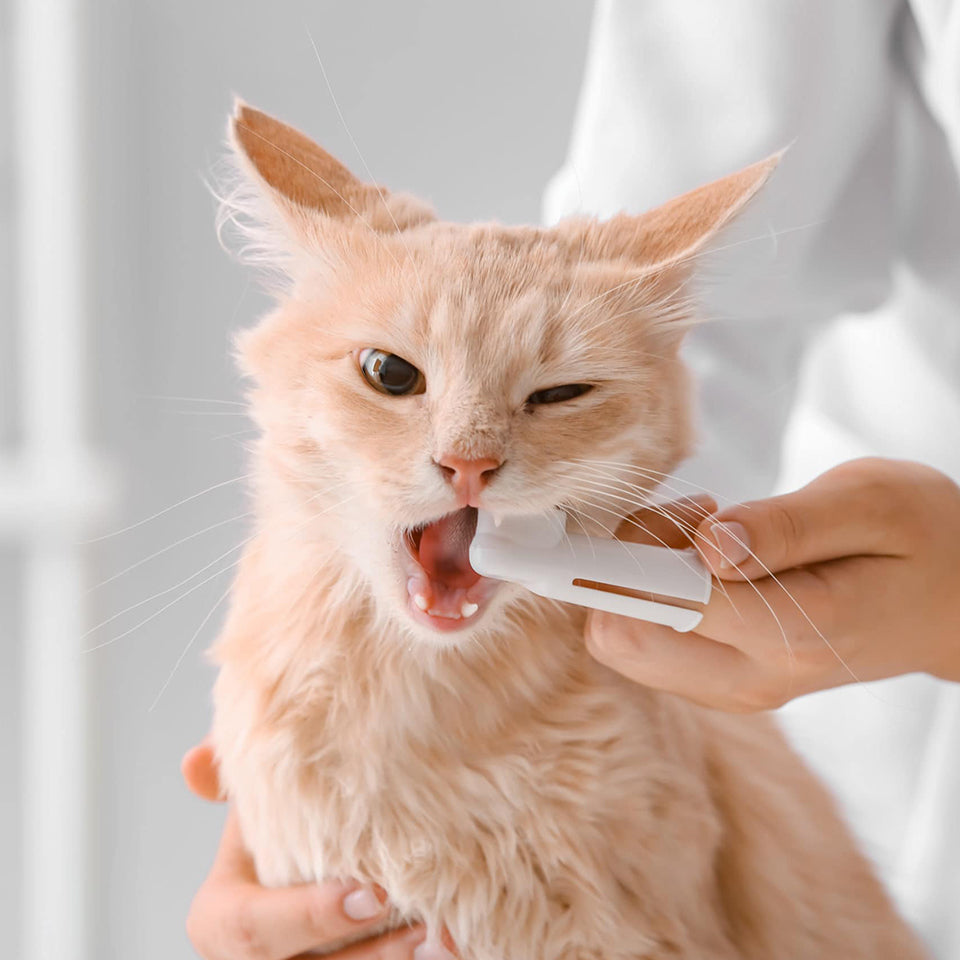Just like humans, dental health is extremely important for dogs and cats. Maintaining healthy teeth and gums can prevent periodontal disease, which is linked to other health problems including kidney, liver, and heart disease.
Your pet’s teeth and gums should be checked at least once a year by your veterinarian to check for early signs of a problem and to keep your pet’s mouth healthy.
What is Veterinary Dentistry?
Veterinary dentistry, oral medicine, and oral surgery include the cleaning, adjustment, filing, extraction, or repair of animals' teeth and all other aspects of oral health care in animals.
The process begins with an oral exam of your pet’s mouth by a veterinarian.
Radiographs (x-rays) may be needed to evaluate the health of the jaw and the tooth roots below the gum line. Because most dental disease occurs below the gum line, where you can’t see it, a thorough dental cleaning and evaluation are performed under anesthesia.
Dental cleaning includes scaling (to remove dental plaque and tartar) and polishing, similar to the process used on your own teeth during your regular dental cleanings.
How can poor dental care affect your pet’s overall health?
- Bad Breath or Halitosis: If you’re noticing your dog or cat has bad breath on a regular basis, don’t hold your nose and hope the problem will go away on its own. It’s time to seek good dental care.
- Tooth Loss: If structures supporting your pet’s teeth become infected, the teeth fall out.
- Oral Pain: Severe dental disease can be very painful for cats and dogs. They’ll suffer from pain in or around the mouth.
- Organ Damage: Bacteria in the plaque can enter the bloodstream and spread to the heart, kidneys and liver.
- Reduced appetite or refusal to eat.
Signs of trouble:
If you notice any of the following signs, you should visit you veterinarian:
- Broken or Loose Teeth
- Pain/Swelling/Bleeding
- Discolored Teeth
- Tartar Buildup
- Refusal to Eat
- Bad Breath
Periodontal disease is the most common dental condition in dogs and cats – by the time your pet is 3 years old, he or she will very likely have some early evidence of periodontal disease, which will worsen as your pet grows older if effective preventive measures aren’t taken.
Dental Disease Stages:
1- Plaque Accumulation: A shiny film of bacteria that coats the teeth. Bad breath and stained teeth are early indicators. If not addressed, the film accumulates and hardens.
2- Tartar Buildup: Plaque hardens into tartar. This is hard calcified deposit that forms on the teeth above or below the gum line. Unlike plaque, tartar must be removed by your veterinarian.
3- Gum Inflammation (Gingivitis): Gingivitis is the mildest form of gum inflammation. If treated early on, the damage from inflammation can be reversed. Tooth loss may result.
Gum Separation (Periodontitis): Inflamed gums allow bacteria to enter the bloodstream thus kidney, heart or liver disease can result. If the gums separate, the damage is permanent.
WAYS TO PROMOTE BETTER DENTAL HEALTH FOR YOUR PET:
- Yearly Exam
- Special Diets
- Teeth Brushing
- Dental Treats/Chews
- Water additives/Rinses/Wipes

Prevention and treatment of dental disease is the key for a healthy pet. In fact, pets that receive good dental care live 20% longer!
Talk with your veterinarian about what you can do to improve your pet’s dental health.
Treatment:
If your veterinarian notices any issues with your pet’s teeth, they will recommend dental surgery.
Dental surgeries include a thorough cleaning as well as any other necessary procedure such as extractions and/or filings. The veterinarian will take x-rays before the surgery begins to get a better picture of your pet’s dental health. Your pet will be placed under anesthesia during the dental procedure to minimize stress and pain. Most pets can go home the same day of their surgery and will just be a little groggy afterwards.
By providing you with more patient insight and clinician support, we hope to help veterinarians prolong dental health in all their patients.
To know more about iVet products visit ivetmedical.com


